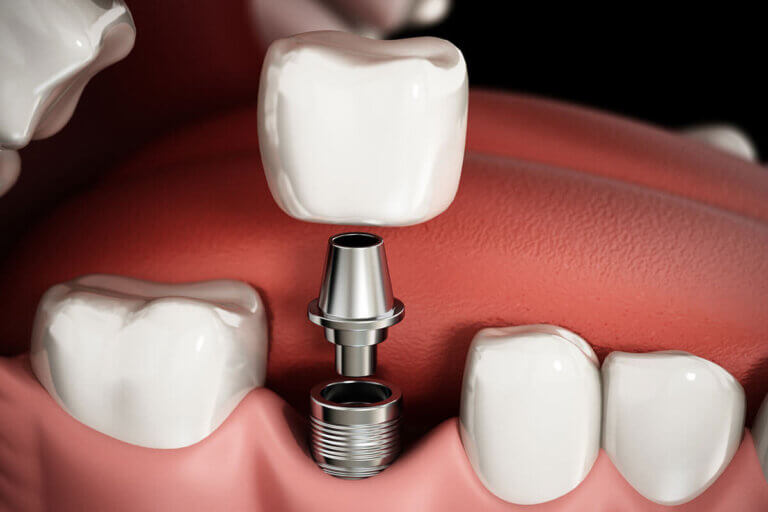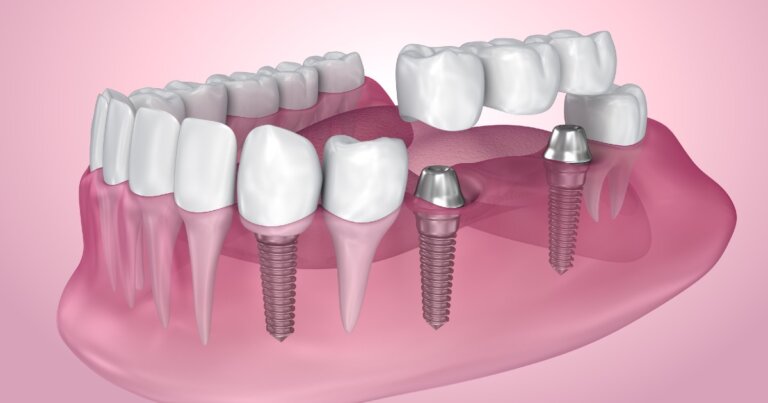Loose Dental Implant Crown

What Is A Loose Dental Implant Crown?
Dental implant crowns are a long-lasting solution for missing teeth, designed to restore function and aesthetics. However, complications can occur, leading to the crown becoming loose or even falling off. If you have a loose dental implant crown, understanding the potential causes, symptoms, and treatment options is essential for ensuring your oral health and the long-term success of your dental implants.
Before you contact a Toronto dentist to examine A Loose Dental Implant Crown, there are some things you should know as a patient:
- Common Causes of a Loose Dental Implant Crown
- Signs And Symptoms Of A Loose Dental Implant Crown
- Treatment Options For A Loose Dental Implant Crown
- Managing A Loose Dental Implant Crown Until You Can See The Dentist
- Frequently Asked Questions About Loose Dental Implant Crowns
If you have questions about A Loose Dental Implant Crown or other dental problems, please contact us for more information.
Common Causes of a Loose Dental Implant Crown
There are several reasons why your dental implant crown may become loose. Understanding the underlying cause can help determine the best treatment:
- Failed Osseointegration: Osseointegration is the process where the titanium implant fuses with the jawbone. If this process fails, the implant may become unstable, leading to a loose or dislodged crown.
- Loose Prosthetic Screw: A prosthetic screw is used to secure the dental implant crown to the implant. If the screw becomes loose due to improper torque during placement or wear over time, it can cause the crown to loosen.
- Poor Fit or Misalignment: If the dental implant crown does not fit properly or has been incorrectly seated, it can lead to instability and the crown becoming loose.
Your dentist can help you diagnose the cause and provide the necessary treatment to restore your implant crown. If you have further questions about A Loose Dental Implant Crown, please contact us.
Signs And Symptoms Of A Loose Dental Implant Crown
If you suspect your dental implant crown is loose, you may experience several symptoms:
- Movement or Wiggling: You may notice that the crown moves when you touch it or when chewing.
- Pain or Discomfort: You might feel pain around the implant or in the surrounding gums.
- Sensitivity: The area around the crown may become sensitive to hot or cold foods and drinks.
- Difficulty Chewing: A loose crown may make it harder to chew your food properly, especially on that side of your mouth.
- Bleeding or Irritation: Minor bleeding or swelling around the implant site may occur if the crown is loose.
If you experience any of these symptoms, it is important to visit your dentist as soon as possible for an evaluation. If you have further questions about signs and symptoms related to A Loose Dental Implant Crown, please contact us.
Treatment Options For A Loose Dental Implant Crown
When you visit a dentist for a loose implant crown, they will likely perform an examination and take X-rays to assess the cause. Treatment options include:
- Tightening the Prosthetic Screw: If the issue is caused by a loose screw, your dentist may be able to tighten it, securing the crown back into place.
- Crown Replacement: If the crown is damaged, your dentist may recommend replacing it with a new one to restore the function and appearance of your tooth.
- Dental Implant Removal and Replacement: In cases where the implant itself is failing, the dentist may need to remove the implant, perform bone grafting (if necessary), and place a new implant and crown.
Prompt treatment is crucial to prevent further complications, such as infections or bone loss. If you have further questions about treatment options for A Loose Dental Implant Crown, please contact us.

Managing A Loose Dental Implant Crown Until You Can See The Dentist
If you cannot see your dentist right away, there are a few steps you can take to manage the situation temporarily:
- Keep the Crown in a Safe Place: If your crown falls off completely, store it in a clean container to avoid losing or damaging it. Bring it with you to your dental appointment.
- Practice Good Oral Hygiene: Clean the area gently with a soft toothbrush and rinse with warm salt water or mouthwash to prevent infection. A Waterpik water flosser is particularly effective in maintaining cleanliness around the implant.
- Avoid Chewing on the Affected Side: Try not to chew food on the side of your mouth with the loose crown to prevent further damage.
- Take Over-the-Counter Pain Relief: Over-the-counter pain relievers like ibuprofen or acetaminophen can help alleviate discomfort. Follow the dosing instructions and avoid exceeding the recommended dose.
Although these are temporary measures, it’s essential to see your dentist as soon as possible to avoid further complications. If you have further questions about managing A Loose Dental Implant Crown, please contact us.
Frequently Asked Questions About Loose Dental Implant Crowns
- Can I fix a loose dental implant crown at home?
No, it’s important to see your dentist as soon as possible if your dental implant crown becomes loose. Attempting to fix it yourself could lead to further damage or complications.
- How long does a dental implant crown last?
A dental implant crown can last anywhere from 10 to 15 years with proper care, but it may need to be replaced earlier due to wear, damage, or other issues like loosening.
- Is a loose dental implant crown covered by insurance?
Coverage for a loose dental implant crown depends on your dental insurance plan. It’s best to check with your provider to see if repairs or replacements are included.
- Can a loose dental implant crown lead to implant failure?
Yes, if a loose dental implant crown is not addressed promptly, it can lead to implant failure, peri-implantitis, or bone loss, requiring more extensive treatment.
A loose dental implant bridge is a serious issue that requires prompt attention from your dentist to prevent further complications. If you have further questions about how to prevent A Loose Dental Implant Crown, please contact us.

